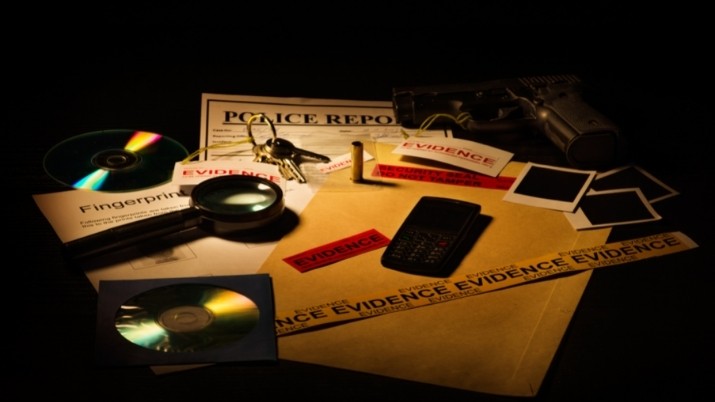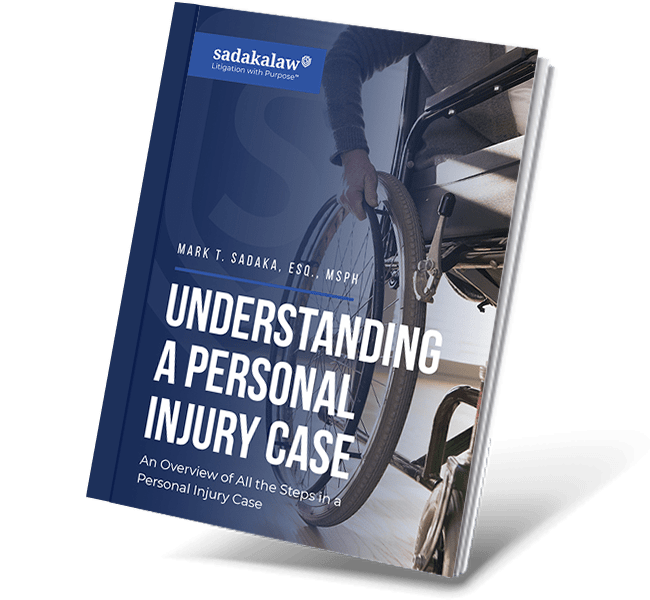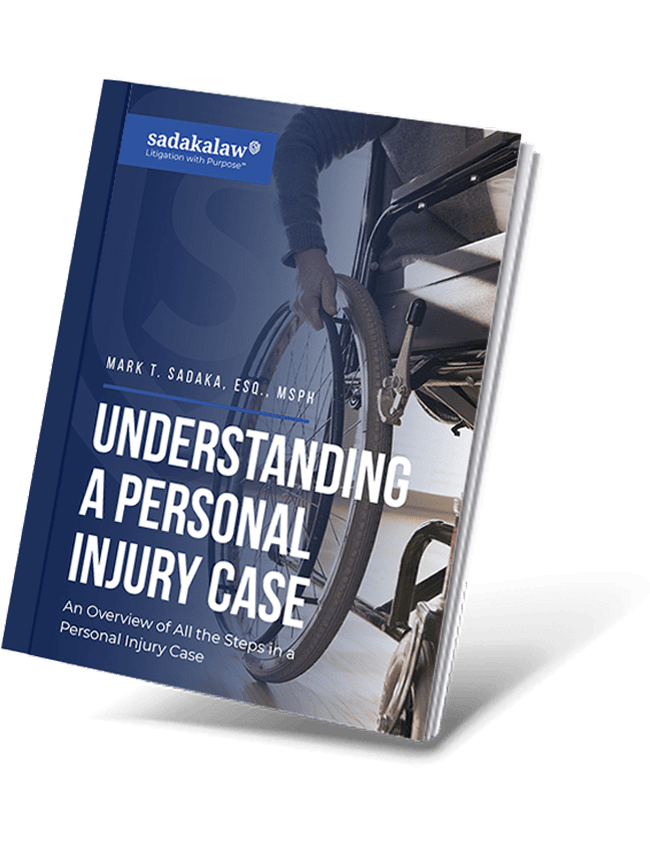Can you be charged with a DUI for riding a bike in New Jersey?
Yes, in New Jersey, if you’re riding a bike while impaired and endangering others, you can be charged with a DUI under similar standards as for motor vehicles.
While road accidents mostly involve trucks and cars, bikes are no exception to the statistics in the United States. One of the most common reasons for accidents is driving under the influence of alcohol (DUI), a charge typically indicating alcohol or drugs inhibiting the driver’s performance. The driver will face charges if proven at fault, depending on the vehicle and the evidence.
New Jersey is one of the most bike-friendly states in the nation, with a few road rules that safeguard cyclists and allow them to use enough space on the road as they deem necessary. However, road accidents are still inevitable, even with authorities enforcing so many precautions and regulations. Some cyclists are still confused about certain laws that govern their use of bikes, though.
Below, our legal team addresses some of the most common questions from New Jersey residents regarding DUI issues and other possible charges for road accidents involving cyclists.
What is a DUI?
DUI, or driving under the influence of alcohol or drugs, refers to the offense of driving while impaired by alcohol or drugs. The authorities will charge anyone driving any type of vehicle under the influence, including motorcycles. The term ‘DUI’ typically refers to a serious offense under the state criminal code, but some states have additional charges for less severe offenses still in violation of state law.
In New Jersey, a DUI is a traffic violation. It is the same under the law as driving while intoxicated (DWI).
Who Can Face DUI Charges?
A prosecutor proves a DUI through the degree of intoxication, often measured in blood alcohol content (BAC). If the driver of a truck or car has a recorded BAC of 0.08% or more, or the state proves they were driving under the influence of alcohol or drugs using various field sobriety tests, that person may find themselves facing a DUI.
However, some drivers face DUI charges with a BAC of less than 0.08%, including drivers under the age of 21 (where a BAC of 0.01% already qualifies for a DUI charge). Commercial driver’s license holders or drivers operating commercial vehicles may face a DUI with a BAC of over 0.04%.
What Tests Prove a DUI?
There are a few ways that officers can determine whether drugs or alcohol impairs the driver once caught. Breath tests are a highly accurate test for determining intoxication, and field sobriety tests often feature for arrested drivers as evidence in court. However, these tests are also sometimes used as evidence for officers’ biased decisions about the potential guilt of a suspect.
The different levels of impairment make it complicated when a person faces arrest or a test for DUI. Blood test requests are common when a law enforcement officer suspects alcohol or drug impairment, and this is a possibility for anyone caught on the road while under the influence.
Can You Get A DUI On A Bike?

It depends on each state. For New Jersey, you cannot receive a DUI on a bike. Legal nuances could lead to a DUI charge, but New Jersey law states that cyclists are only legally considered to be operating “a bicycle.”
Bicycles do not fall under this definition, and you can’t be charged with DUI when you are on a bike. However, you are allowed to ride your bike as long as you don’t endanger yourself or other motorists. If this is not reflective of your conduct on the bike, you may instead face disorderly conduct or public intoxication charges.
- Disorderly Conduct: If you commit an act that disturbs others in the community while riding your bike under the influence, you may be charged with disorderly conduct. These acts include the use of foul language, making a noise, and resorting to violence that leads to public alarm.
- Public Intoxication: Less severe than disorderly conduct, public intoxication is usually applied when a person is caught drinking or using a substance while riding a bike. The state punishes the misdemeanor via fines, community service, and jail time. However, New Jersey prioritizes the welfare of the people involved and takes them into custody or signs them up for rehabilitation.
A DUI cannot typically apply to cyclists in New Jersey, but it is important to follow the rules and regulations of the road to avoid accidents and other consequences of poor judgment.
Tips on How to Avoid Bike Accidents
Biking is an excellent way to enjoy some exercise, save money on transportation, and reduce your carbon footprint. It comes with the same risks as any other form of transportation on the road, but you can avoid common bike accidents and injuries with these four simple tips:
#1 Wear a Helmet
The primary goal of a helmet is to protect you from head injuries during an accident. While bikes may not face fatal accidents as much as cars or motorcycles, it is still crucial to wear protective gear to lower the risk of head trauma.
#2 Use Proper Pedal and Brake Control
Another way to prevent accidents is taking time to learn how to use the brake and pedal properly. It helps avoid collisions and highlights the pedal emergency break in case of a sudden fall. Defensive driving can save lives with brakes to slow down or come to a dead stop whenever necessary.
#3: Use Distance and Traffic Control
Safety should always be a priority when biking. For example, lane positioning is crucial for cyclists when accurately judging the space needed for turning or passing other vehicles on the road. Unless you’re riding downhill, it is never a good idea to coast alongside a moving car.
#4: Respect Traffic Laws
Biking responsibly takes more than basic safety precautions. By following traffic laws, obeying all signs and signals, and keeping the bike in good repair, bike owners can keep themselves and everybody else on the road safe.
What To Do In Case of an Accident Involving a Bike?
While road accidents involving bikes are less common, these situations are inevitable. It’s important to know what to do when a bike accident occurs, including the following considerations:
- Check yourself. Do you have any injuries? Can you stand or walk on your own? If you have an injury, seek medical attention immediately.
- If you are fine, check others. Are the other parties involved safe? If someone has been hurt, call for medical immediately.
- Document and gather information. After verifying that everyone is safe, it’s critical to remember to ask for primary information, such as name, phone number, address, and insurance card. You should be able to identify the parties involved in the accident and inquire about their injuries or vehicular financial damages at this point where applicable.
- Report it. In the case of serious injuries or damages, report them immediately. Inform your insurance company and seek legal assistance, especially if one of the parties wants to file a complaint about an injury or damage claim.
How Do You File For an Injury or Damage Claim?

If you are filing a case after the accident, the following details are important:
- Ask for legal help. It’s better to seek legal assistance from a personal injury lawyer familiar with road accidents. The Law Offices of Sadaka Associates will help you file a claim and navigate the process. You should present the injured party’s name and address and show proof of involvement in a motorcycle accident with their statement.
- Prepare documents and other evidence. The proof will support the accident damages, including medical bills, doctors’ certificates, and pictures of damaged property. You can use any proof of the value of damages to present a case.
- Notate details. List the dates and places where you attended appointments or accident-related meetings so that you can always refer to these details in the future. You may need these details to give a testimony or to file for a legal or insurance claim.
- Don’t sign anything. Never sign a document that says you are going to be responsible for damages. If you were not responsible, rather seek assistance from the Law Offices of Sadaka Associates before you sign something.
Once your paperwork is in order, it is time to file a personal injury claim and bring a claim against your insurance provider through your personal injury attorney or representative from the Law Offices of Sadaka Associates. Filing a claim is not as straightforward as it seems, and professional assistance can be invaluable if you want to enjoy the peace of mind that comes with a satisfactory settlement.
Call the Law Offices of Sadaka Associates for Our Personal Injury Lawyers
When it comes to road accidents and DUIs, the Law Offices of Sadaka Associates understand the challenges of accident claims and the aftermath facing those injured or made liable for damages. Our personal injury lawyers offer excellent legal assistance for litigation with purpose in New Jersey. Contact us today at 1-800-810-3457 to discuss your legal needs and protect yourself and your loved ones from an unnecessary financial burden after an accident.
While road accidents mostly involve trucks and cars, bikes are no exception to the statistics in the United States. One of the most common reasons for accidents is driving under the influence (DUI), a charge typically indicating alcohol or drugs inhibiting the driver’s performance. The driver will face charges if proven at fault, depending on the vehicle and the evidence.
New Jersey is one of the most bike-friendly states in the nation, with a few road rules that safeguard cyclists and allow them to use enough space on the road as they deem necessary. However, road accidents are still inevitable, even with authorities enforcing so many precautions and regulations. Some cyclists are still confused about certain laws that govern their use of bikes, though.
Below, our legal team addresses some of the most common questions from New Jersey residents regarding DUI issues and other possible charges for road accidents involving cyclists.


